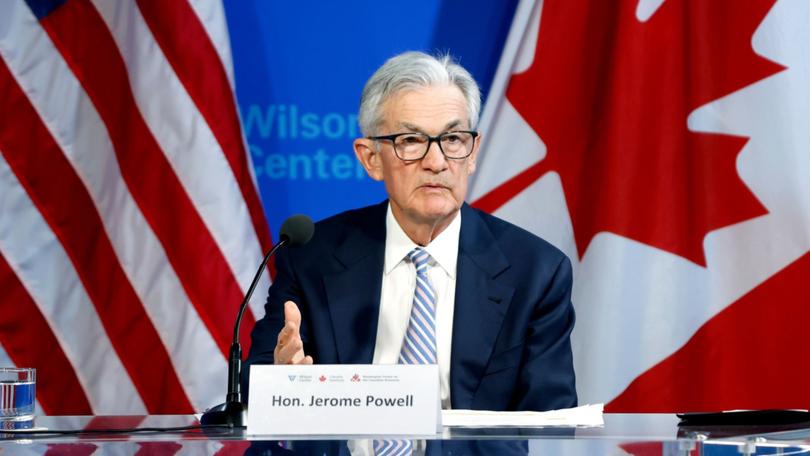Delays to US interest rate cuts may not affect Reserve Bank of Australia’s decisions, economists say
Suggestions from Fed chair Jerome Powell that interest rate cuts could take longer than expected has sent jitters across markets and pushed bond yields higher but impact on Australia may be minimal.

Suggestions from US Federal Reserve chair Jerome Powell that interest rate cuts could take longer than expected has sent jitters across markets and pushed bond yields higher but analysts say the impact on the Reserve Bank of Australia could be minimal.
Mr Powell declared inflation has not moved down fast enough and it would take longer than first thought to be confident it would do so. At the same time, European Central Bank president Christine Lagarde said inflation in that area was moving “according to expectations”, suggested rate cuts soon.
Locally, March unemployment data on Thursday and quarterly inflation figures due next Wednesday will be key to the RBA’s next determination, due to be announced on May 7. Economists expect the unemployment rate to increase to 3.9 per cent — from a dip to 3.7 per cent in February — while inflation is now at 4.1 per cent.
Sign up to The Nightly's newsletters.
Get the first look at the digital newspaper, curated daily stories and breaking headlines delivered to your inbox.
By continuing you agree to our Terms and Privacy Policy.The RBA is expected to keep rates on hold at 4.35 per cent next month after governor Michele Bullock last month said only nothing could be ruled in or out given widespread economic uncertainty.
“More recent data shows solid growth and continued strength in the labour market, but also a lack of further progress so far this year on returning to our 2 per cent inflation goal,” Mr Powell said at a forum on Tuesday, local time.
Rates in the US are at a 23-year high of 5.25 per cent to 5.5 per cent, while annual inflation is at 3.5 per cent and has been increasing since October.
“The recent data have clearly not given us greater confidence, and instead indicate that it’s likely to take longer than expected to achieve that confidence,” Mr Powell said.
“That said, we think policy is well positioned to handle the risks that we face.
“We can maintain the current level of restriction for as long as needed.”
His comments pushed the S&P500 into its third straight day of losses, but Treasury yields climbed. Analysts believe investors are weighing up the strong US economic growth with the larger inflation story, which will eventually translate into equities.
AMP deputy chief economist Diana Mousina said rate cuts in Australia may not be delayed if the US took longer to cut.
“The US economy is often seen as a leading indicator for the rest of the world, from impact to global economic growth and financial markets,” she said.
“But the Fed is unlikely to be the first major central bank to start cutting interest rates in this cycle, just as it wasn’t the first major bank to hike rates after the pandemic.
“Domestic growth conditions are the primary factor behind a central bank’s decision on monetary policy.”
National Australia Bank economists expect the Fed to start cutting rates in September but said on Wednesday that “this will require some improvement on recent inflation readings”.
They also noted markets at the start of the year expected the Fed and the ECB to each cut rates by 1.5 percentage points but those had now been pared back to about 45 basis points and 80 basis points, respectively.
Ms Lagarde said rate cuts for the ECB were on track in coming months, subject to any major shocks. She added the ECB would “very closely” monitor oil prices amid increasing tensions in the Middle East.
“We are observing a disinflationary process that is moving according to our expectations,” Ms Lagarde told CNBC.
“Subject to no development of additional shock, it will be time to moderate the restrictive monetary policy in reasonably short order.”
